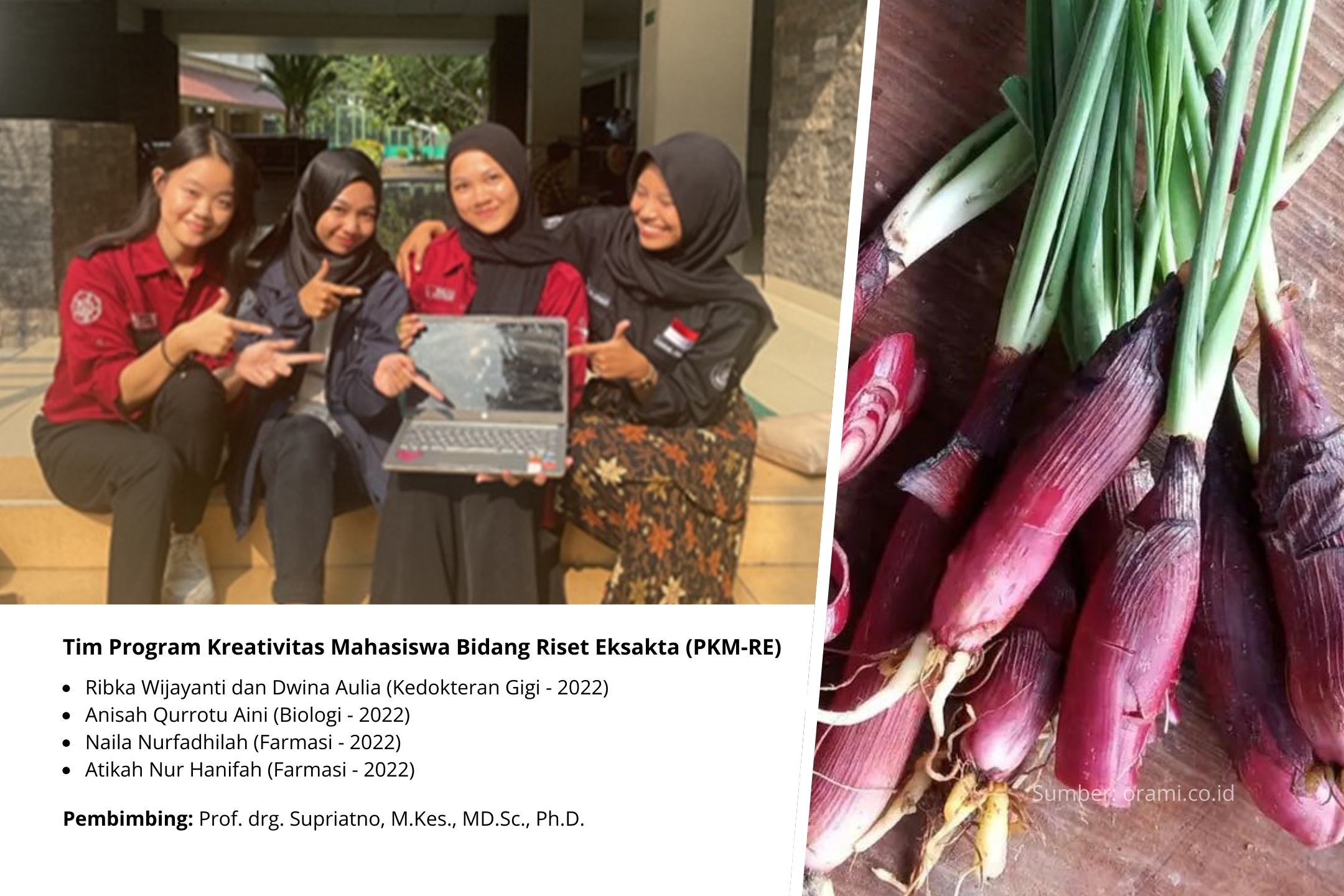Students from Universitas Gadjah Mada (UGM) have successfully developed a new method to utilize Dayak onion (Eleutherine bulbosa) bulbs as an agent to inhibit cancer growth and treat cancer cells, specifically targeting the tongue. This research offers hope and advancement in the treatment of tongue cancer, a lethal malignancy that commonly occurs in the oral cavity and can spread to the lungs and liver.
The students, who are members of the Exact Sciences Research Creativity Program (PKM-RE), include Ribka Wijayanti and Dwina Aulia (Dental Medicine 2022), Anisah Qurrotu Aini (Biology 2022), and Naila Nurfadhilah and Atikah Nur Hanifah (Pharmacy 2022), under the guidance of Prof. Drg. Supriatno, M.Kes., MD.Sc., Ph.D. They successfully isolated exosome-like nanoparticles from Dayak onion using a polymer-based precipitation technique. These nanoparticles are known as Plant Derived-Exosome Like-Nanoparticles (PDENs).
Dayak onions contain very strong antioxidants, rich in compounds such as isoliquiritigenin, isoeleutherine, flavonoids, and oxyresveratrol. “Various therapeutic compounds present in a single plant cannot be utilized simultaneously as therapeutic agents with conventional extraction methods alone. It is necessary to use Plant Derived-Exosome Like-Nanoparticles (PDENs) to transport all therapeutic compounds to the target organs,” said Ribka Wijayanti.
The research team explained that cancer can occur due to proto-oncogene activity, which causes excessive cell growth and inhibition of tumor suppressor genes. Tongue cancer is a malignant type that often occurs in the oral cavity. Cancer can recur at its primary site and spread to other parts of the body.
The study began by isolating PDENs from Dayak onions using polymer-based precipitation with Polyethylene Glycol 6000 (PEG6000), resulting in a Dayak onion PDEN solution. They then tested the inhibition of cancer cell growth and treatment of human tongue cancer cells using various concentrations of Dayak onion PDENs.
The test results showed that the application of Dayak onion PDENs affected the reduction of cancer cell growth and induced apoptosis (programmed cell death). “The number of live cancer cells decreased due to apoptosis, and the number of growing cells decreased with higher concentrations of Dayak onion PDENs,” said Dwina Aulia.
This research contributes to Sustainable Development Goal 3, which focuses on "Good Health and Well-being." By developing a more effective, plant-based cancer treatment method, this study supports global efforts to enhance public health and well-being.
Author: Diva Luthfiana | Editor: Fajar Budi H.

